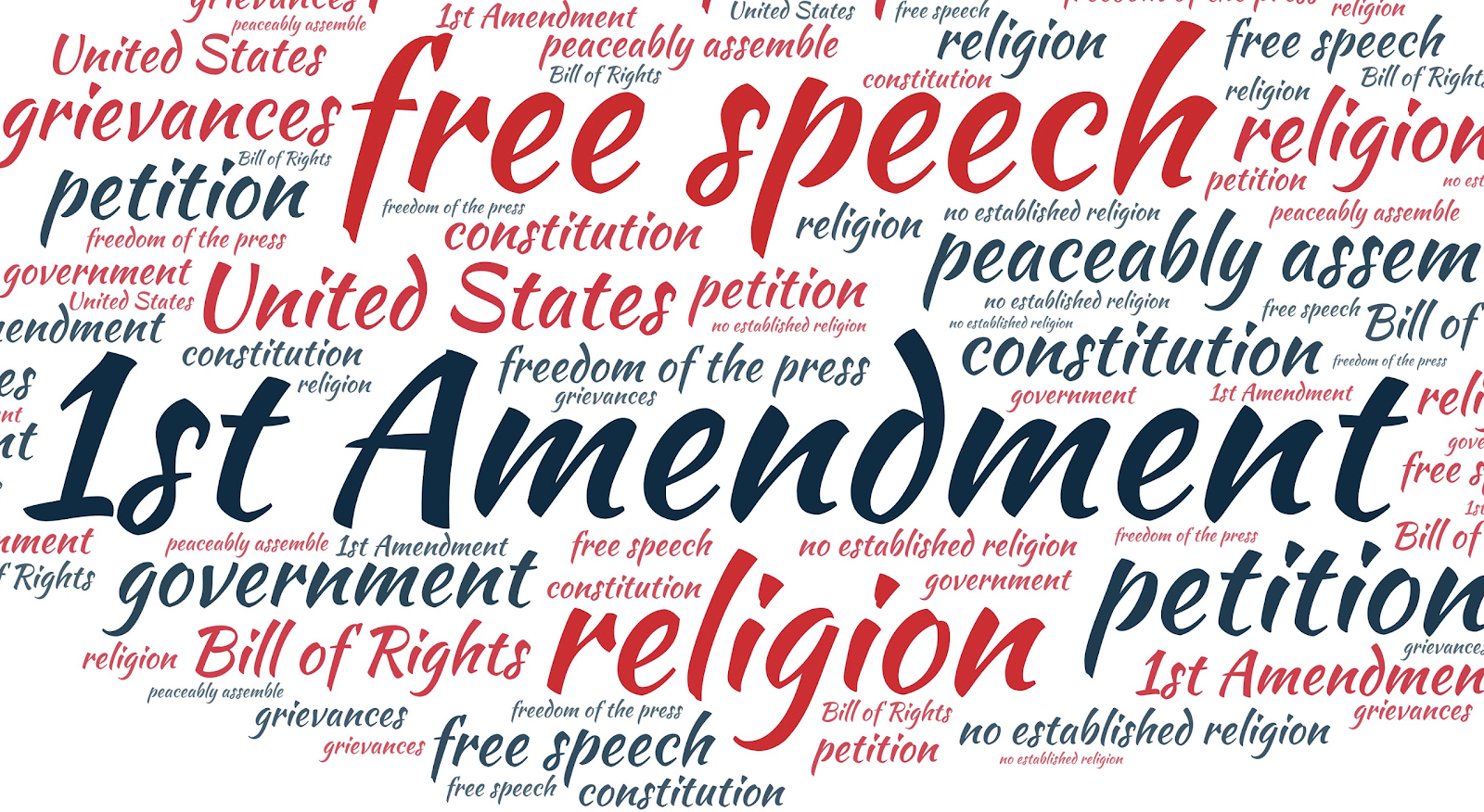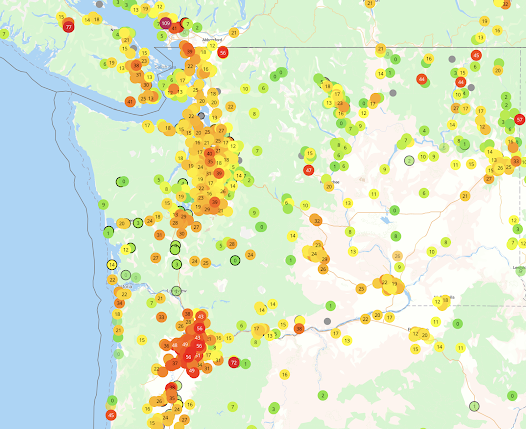Faculty Freedom of Speech and Diversity is Threatened at the University of Washington
For a university to serve its community, produce new knowledge, and educate its students, the faculty cannot be afraid to speak freely.
For a university to provide a place where knowledge and ideas are freely shared and debated, faculty must be shielded from outside political pressure, and diversity of viewpoint must be protected for both faculty and students.
As I will describe below, there are serious threats to faculty diversity and freedom at the University of Washington. Threats reminiscent of the loyalty oaths of the late 1940s and early 1950s. Subtle and overt pressure against faculty holding the “wrong views”, with University faculty increasingly pushed towards a monoculture of political correctness.
This is not simply a faculty issue. It will influence which students are admitted to the UW and the type of education they receive.
Should All University Faculty Be Required to Actively Support A Diversity/Equity/Inclusion Agenda?
During the next few weeks, the University of Washington faculty will vote on a requirement that mandates a statement demonstrating concrete action in support of a diversity, equity, and inclusion (DEI) agenda.
This proposed new mandatory statement would be in addition to the current requirement that faculty demonstrate progress in teaching, research, and public service. The faculty code already states that contributions to diversity and equality of opportunity can be cited for supporting promotion; it is just not required.
Establishing DEI requirements is the current rage among major coastal universities, particularly those in blue-leaning states. It is highly political, with strong support among many progressives, but with far lesser support among those with more moderate viewpoints.
A key issue is the term “equity”, which DEI supporters generally see as meaning equal outcomes for all groups in society. In contrast, a more moderate, traditional viewpoint generally highlights equality of all individuals, with each given equal rights and opportunities, but no guarantees of success. In a university with “equity”, preferences are often made for specific groups, such as for admissions or providing special aid and support for certain “underrepresented” populations.
Requiring that all faculty support a social/political agenda favored by one segment of society not only politicizes the university but represents “compelled speech”, a violation of the First Amendment of the U.S. Constitution. It is probably illegal.
But the situation at the UW is even worse than that. There is no guidance on what DEI activities would represent acceptable faculty progress: the decision is left to each department or unit on campus. This pushes the door of potential abuse wide open.
Although most faculty just want to get on with their research, teaching, and service, there is a vocal minority of faculty and university administrators that are pushing their departments and the university to take on an activist, politicized, progressive agenda. These individuals, many of them idealistic and well-meaning, wish to mold the world towards their vision of social justice. And in their self-righteous worldview, it is fine to suppress the viewpoints of others, push out “unbelievers”, and discourage those with different political viewpoints.
They love to talk about diversity, but their diversity is narrow and only includes individuals with similar beliefs or members of favored groups. And I note there is no definition of what diversity and inclusion means in the new faculty requirements, again leaving the potential for abuse.
A Serious Threat to Faculty Freedom and Diversity at the University of Washington
With no overall guidance for the mandatory DEI requirement for faculty advancement, faculty ideologues, gaining chair or other influential positions in a department, could demand that other faculty “bend the knee” to their political or social agendas by defining the DEI requirements for advancement to match their own viewpoints. This is extremely dangerous and concerning.
Is this a theoretical threat? Unfortunately not. Some faculty advocates for politicized actions are already working to punish and suppress those that disagree with them—and this serves as a stern warning of what might happen if the mandatory DEI statement passes.
For example, during the past few weeks, a faculty DEI advocate in a STEM department pushed to find a junior colleague “unmeritorious” for a pay raise because the junior faculty member opposed the DEI initiative mentioned above. Fortunately, other department faculty came to the defense of free speech.
Or consider the case of the faculty listserv run by the local chapter of the American Association of University Professors (AAUP). The AAUP listerv, which is the largest faculty platform for online discussion (distributed to several thousand faculty and administrators), is moderated by two far-left faculty members that facilitate messages reflecting their viewpoints; they frequently reject messages from those who don’t subscribe to their ideas. In the case of this DEI requirement, the AAUP moderators have rejected many messages from faculty that criticized the DEI plan, including my own. For example, AAUP moderator Amy Hagopian (who is running for a new faculty regent position), provided this rationale when she rejected my message criticizing the mandatory statement:
“Our concerns remain about giving so much air time to those who seem to be hostile to the university’s attempts to amplify diversity, equity and inclusion.”
A transparent attempt to suppress diversity of viewpoint that differs from her own.
There was a time when the AAUP fearlessly defended faculty freedoms and speech, such as its heroic efforts to stand against the loyalty oaths of the 1950s. No longer. Captured by a contingent committed to a certain brand of politics, AAUP now suppresses free speech while it pushes a politicized agenda.
I could provide many more disturbing examples of attempts by faculty political activists to publicly shame or attack other faculty with different viewpoints (including what happened to me when I did not support initiative 1631). Members of my department and others have told me they were afraid to express their ideas on socially charged issues, and both graduate and undergrad students have said the same thing.
Discomfit at the Top
It is clear that the UW administration is nervous about this DEI requirement. UW President Ana Mari Cauce, has shown herself willing to make hard decisions to protect freedom of speech, and her statement to the University of Washington faculty Senate made clear her concerns about the proposed legislation. President Cauce’s family was forced to leave a communist nation, and as with many of her history, she energetically defends essential democratic freedoms. But in this case, she is powerless if the faculty votes to put on the political shackles.
What Can You Do?
The threats to faculty freedom of speech and diversity of viewpoint emanating from the proposed faculty DEI requirement are clear. Demanding that faculty agree with and support a particular ideological viewpoint is not only illegal but would diminish the university in profound ways.
It will inevitably and profoundly alter the attitudes of the faculty over the long term. Would a prospective faculty member who valued freedom of expression and true diversity of viewpoint want to come to the University of Washington? The changes have already begun but will accelerate if this measure passes.
The University of Washington should serve all citizens of the State, of all backgrounds and political viewpoints. Prospective students should know that their admission to the UW will not depend on their race, religion, sexual orientation, ethnic background, or politics, but on their abilities and past efforts. They should know that they will be instructed by faculty who welcome differing viewpoints.
You should be concerned, no matter your political orientation.
So how can you help?
If you are a faculty member, please vote against the proposal.
If you know a faculty member, please talk to them about it.
If you are a donor or supporter of the UW, please make your views known in whatever way you see fit.








Comments
Post a Comment